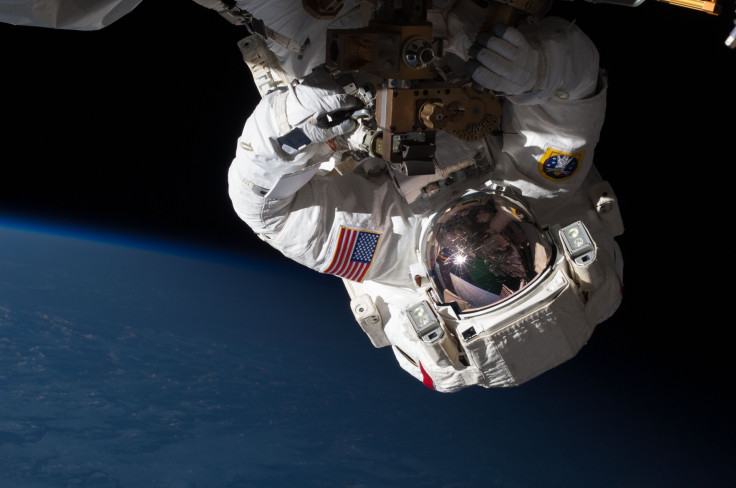Researchers Study How Spaceflight Affects Female Astronauts' Blood Clot Risks
KEY POINTS
- Researchers studied the effect of spaceflight on female astronauts' blood clot risks
- In January, an unnamed astronaut developed a blood clot two months into a six-month mission
- Spaceflight and contraceptive use did not appear to increase blood clot risks
In a "first of its kind" study, researchers analysed the potential risk factors that can lead to female astronauts developing a blood clot in space, and recommended more studies on the effect of spaceflight on them.
It was in January a case study reported the first case of an astronaut developing a blood clot while aboard the International Space Station (ISS). According to the report, the unnamed astronaut was just two months into a six-month mission, so doctors had to remotely treat the condition with the use of telemedicine and the available medications aboard the ISS.
For a new study, researchers looked at the risk factors that may lead astronauts to develop venous thromboembolism (VTE) or blood clots in space. Specifically, the researchers focused on the blood clot risk among female astronauts, and whether the use of combined oral contraceptive pill (COCP) for menstrual cycle control during spaceflight would affect their blood clot risk. This is because on Earth, COCP use is known to double the possibility of VTE. During spaceflight, however, the risk is unknown.
For the study, researchers studied the pre- and post-flight hematological and biochemical blood markers from 38 long- and short-duration astronaut flights from 2000 to 2014, and found no evidence on increased blood clot risks in female astronauts, "regardless of contraceptive use."
"Arguably, all astronauts encounter many physiological stressors during spaceflight missions, but women using the combined contraceptive pill add a known risk factor for VTE," the researchers wrote in their study published in Aviation Medicine and Human Performance. "The risk factors analyzed within this study showed no trend toward an increased risk of VTE for female astronauts. This study provides an evidence base supporting the safety of COC use by female astronauts and also reinforces the importance of healthy lifestyle on VTE risk reduction."
That said, the researchers recommend carrying out more blood tests during astronaut selection and medical reviews since there are certain activities during spaceflight and even during training that may increase blood clot risks. They further recommend contraceptive use should be considered during occupation-related risk reviews, as women in various occupations, such as female astronauts, may want to control their menstrual cycles.
"We see a need for continuing studies with female astronauts," senior author Dr. Virginia Wotring of the International Space University said. "Much of the previous biomedical research in space was conducted on mostly male astronauts, because most of the astronauts were male. That has changed, and now we need to understand how the spaceflight environment impacts female physiology."

© Copyright IBTimes 2024. All rights reserved.






















